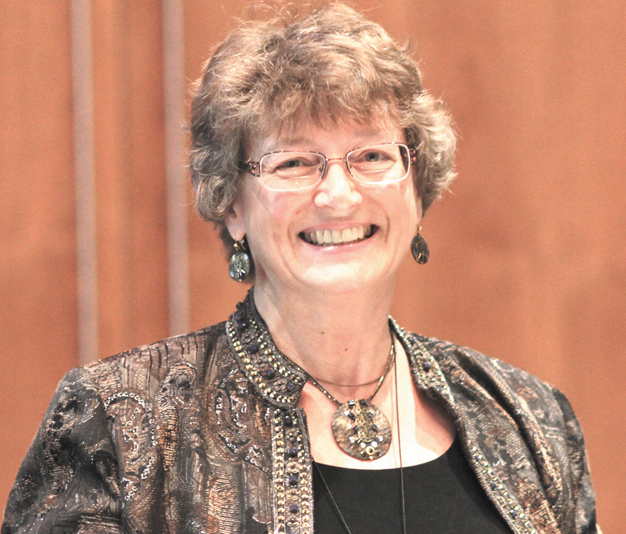A heritage of children

Our Dual Heritage Series
Jewish Family Education with Candace R. Kwiatek, The Dayton Jewish Observer
For the fourth year in a row the number of births in the U.S. has declined to “the lowest number of births in 32 years,” according to a 2018 report from the National Center for Health Statistics. In her analysis of this trend, health correspondent Julia Belluz explains that today’s historically low fertility rate of 1.72 — lower even than the fertility crash of the Great Depression — is well below the replacement rate of 2.1 needed for population renewal and societal stability.
In fact, today, “half of the world’s countries have fertility rates below the replacement level,” according to Prof Christopher Murray, the director of the Institute for Health Metrics and Evaluation at the University of Washington.
What is contributing to America’s decline in childbearing? Not the overall cultural mind-set, which still seems largely to favor children.
“The baby-product industry is at a record high,” notes Time reporter Lauren Sandler.
Unique children’s programs incorporating STEM to the arts are proliferating. Alongside hundreds of titles on pregnancy, childbirth, infertility, and adoption, bookstores feature a growing selection on tips and tricks for working at home, pausing for parenthood, and balancing career and family.
In fact, according to Amy Richards, author of Opting In: Having a Child Without Losing Yourself, “There’s more pressure on women to be mothers, to fulfill that obligation, than I’ve ever seen.”

Yet half of today’s Americans say two children is the ideal family size, while in the 1960s it was four or more, according to a 2015 Pew Research Center study.
The average cost of child-rearing — over a quarter-million per child to age 17 — is the most frequently cited barrier to more children, as parents want to give each child “the best of everything.”
However, 40 percent of parents say they simply don’t want more children, according to Pew research.
Alongside the move to smaller families, there’s a growing trend to have no children at all. Pew reports that among childless adults younger than fifty, 37 percent say they don’t ever expect to become parents.
While some cite a “lack of maternal instinct,” America’s “mommyhood martyrdom” childrearing approach disenchants many more potential parents.
Sociologist Julia McQuillen quips, “If we make motherhood unrealistic, why would we want to do that job?” Career ambitions, independence to pursue interests such as travel and hobbies, and preference for adult and partner relationships also motivate the childfree choice. “I’m busy with my own life,” is a common sentiment.
Radio host Madeleine Brand suggests the childfree trend reflects a loss of hope in the future. “What about all the school shootings, bigotry, racism and sexism in America?” she asks.
Add to those woes overall population increases fueled largely by underdeveloped countries, dwindling resources, and climate change, and their threats to sustainability and civil order, which are also motivating childlessness. In the extreme are anti-natalists, who view life as bad, filled with suffering, and totally pointless. They conclude that having children is intrinsically cruel and irresponsible, even immoral.
According to Pew analyst George Gao, these dramatic shifts in American attitudes about children and parenthood, along with many other cultural changes, arose in the 1960s and 1970s, likely triggered by wide availability of the birth control pill and women’s growing participation in the workforce, along with the increasing cost of child rearing. Triggers not appearing on that list, however, are the parallel declines in personal religious commitment and the influence of biblically founded values on American life.
These attitudinal and behavioral shifts are not evident among the religious. According to two different studies on religiosity, fertility, and family size, traditionally participatory religious families have intentionally maintained a stable commitment to having children and to larger family sizes.
In American and Jewish traditions alike, attitudes toward children have their roots in the Bible. Children are a gift from God.
The purpose of parenting is to teach children, raising them to become morally and ethically good adults.
They are also to be self sufficient. The Talmud counsels that children be taught a trade and how to swim (contemporary survival skills), while America’s apprenticeships and trade schools, public schools and universities, even internships and recreation have done much the same.
Foundational to Judaism and America alike, the biblical saga is the story of well-meaning but imperfect parents and generations of mostly good children who were the hope — even the guarantors — of a future.
Despite adversity in every generation, in every lifetime, they went on to become the architects of societies guided by Sinai, framers of the foundations of Western Civilization, and builders of a better — although admittedly still imperfect — world.
It’s a saga that has been echoed in the American narrative. It’s a saga that is yet incomplete. However, commentator Dennis Prager observes, “What was once a shared, religiously informed, cultural imperative has now become a choice.”
Which brings us to the Bible’s first commandment. In Genesis 1, we read, “God said to (the first humans), ‘Be fertile and increase, fill the earth and master it.’”
Why does God have to command having children? Because sex is only an instinct. Children are a value. Children are the path to perpetuating the civilization that values them. Children are the path to mastering the earth, not abandoning it. And only children are the path into the unknown future.
Literature to share
The Nine by Jeanne Blaserg. A helicopter mom’s dreams for her son, the darker side of an elite boarding school, and the power of the need to fit in hint at the broad storyline of this suspenseful, highly addictive novel. Skillfully written to also include themes of privilege, the power of money, conspiracy, family relationships, sacrifice, overcoming adversity, and more, this book just begs to be a book club selection. I couldn’t put it down.
Room for Rent by Leah Goldberg. With an unexpectedly empty apartment in their “fine old house,” the remaining neighbors advertise the room for rent. But when prospective renters come for a look, they can only find fault with their future neighbors…until a memorable character arrives with a completely different perspective. A bestselling Israeli children’s classic for 50 years, Goldberg’s Jewish fable features charming illustrations, gentle rhymes, and a timeless message. Highly recommended.
To read the complete January 2020 Dayton Jewish Observer, click here.


